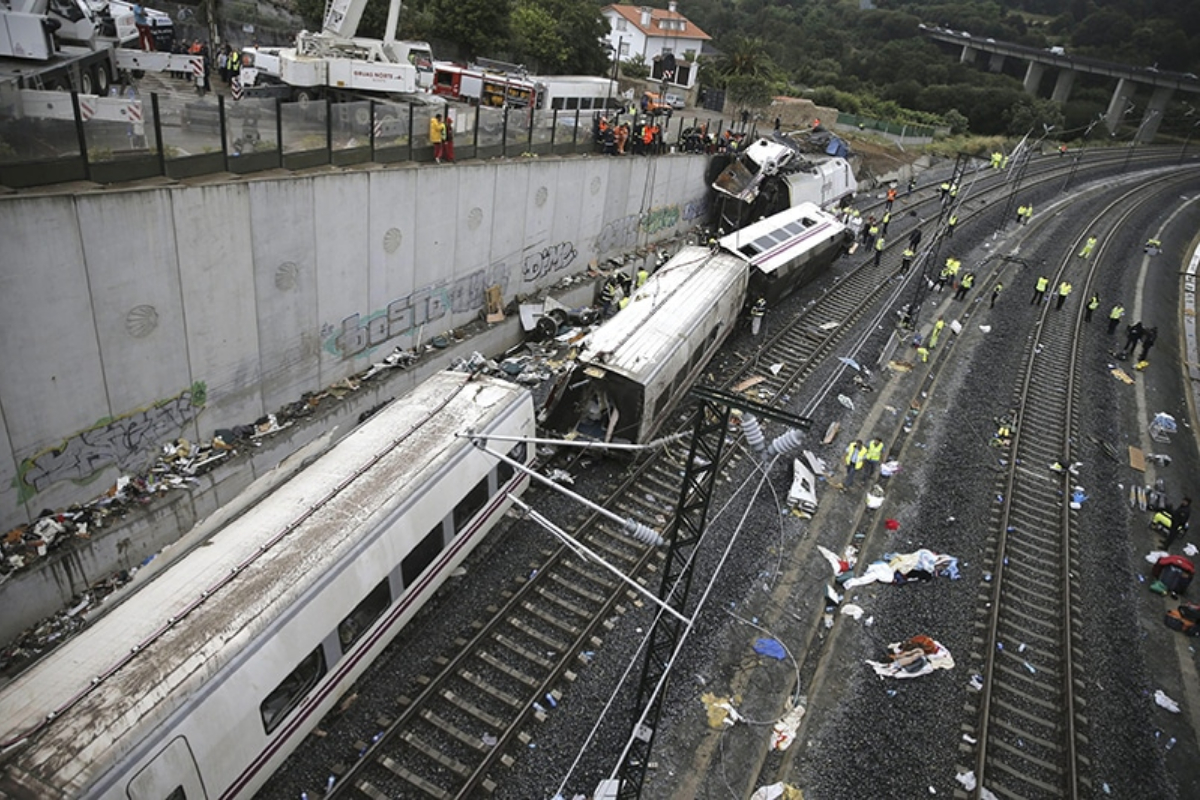- On July 24, 2013, a train traveling from Madrid ran off the rails in Santiago de Compostela.
- It crashed into a concrete siding, killing 80 and injuring 145.
- Two individuals have been charged with culpability for the accident.
A major trial to determine to blame for the worst rail tragedy for Spain in almost 80 years begins on Wednesday, nine years after a high-speed train wreck that killed 80 and injured over 140.
On July 24, 2013, a train traveling from Madrid ran off the rails on the outskirts of Santiago de Compostela, a city in the northern region of Galicia, as it sped around a steep bend.
It crashed into a concrete siding, killing 80 and injuring 145 in the bloodiest train accident in the history of Spain since 1944.
Throughout the duration of the trial, which is set to go through February, 669 witnesses will testify.
The trial will take place in a Santiago cultural center that has been converted into a courthouse to accommodate the high number of attorneys and civil parties interested.
Two individuals have been charged with culpability for the accident: the driver, Francisco Garzon, and Andres Cortabitarte, the former safety director at state rail operator ADIF.
Both are charged with “homicide due to gross professional negligence.”
Prosecutors recommend that each defendant serve four years in prison.
And the families of the victims are seeking approximately 58 million euros in damages, according to court filings.
Excessive velocity
According to its black box data recorders, the train was traveling at a speed of 179 kilometers per hour (111 miles per hour) at the time of the collision, which was more than twice the speed limit for that piece of track.
Moments before the train derailed, the 52-year-old driver stopped a mobile phone conversation with the conductor on board, according to investigators.
The courts first determined that Garzon’s high speed was “the sole cause of the accident” of the accident and charged him with reckless homicide and injury-causing conduct.
However, its conclusion that state rail operator ADIF carried no criminal obligation was later amended in response to protests from the families of the dead, who claimed that ADIF was at fault because neither an automatic braking system nor sufficient warning signs were in place before the bend.
In 2016 the investigation was restarted and Cortabitarte was charged.
The families applauded the judgment but expressed sorrow that no politician was held accountable, most notably the infrastructure minister at the time, Ana Pastor, who exerted pressure on Brussels to prevent the release of a report critical of Madrid, the Capital of Spain.
“Not only was the train derailed but so was justice over these past nine years,” the Alvia 04155 victims’ association wrote in a Facebook post.
It criticized the “delay” in bringing the case to trial and vowed to continue fighting “until it was established who was responsible.”
[embedpost slug = “/four-bodies-found-29-missing-off-spains-canary-islands/”]





















